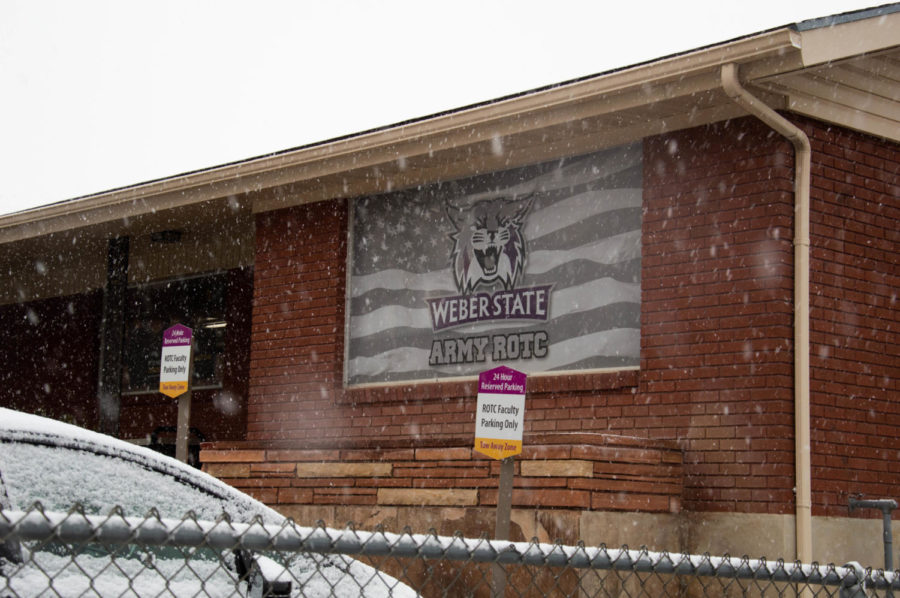Marriage before finishing college is stereotypically not recommended, but among the Weber State University student body, it does not seem to matter.
WSU students, whether married or single, still seem to engage in the college experience to some extent. However, for those who are married, participating in college activities seems to rank lower on their priority list. For students like newlywed freshman Adriana Romero, balancing studies, work and family life can be challenging.
“I go to work right after school,” she said. “It’s harder for me to get involved because I have so many things going on, so I only have weekends to do things.”
Alec Stanley, an unmarried WSU freshman, mentioned that friends of his seem to perform better in school now that they are married.
“In my life, marriage is a necessary step . . . something that should come when you’re ready for it,” he said.
Mark Adams, WSU professor and licensed marriage and family therapist, said he believes WSU students decide to wed before finishing school for two basic reasons: Utah norms and natural sexual desire.
“The strongest . . . motivator is the cultural expectations,” Adams said. “(But) the decision and pathway (the couple) take in that journey needs to be done together; it needs to be a mutual decision.”
Romero said her reason for marriage before finishing college was a little different.
“You can’t help who you fall in love with,” she put simply.
Although being married during college years might make life different in comparison to those who are not, it does not always indicate additional work. WSU freshman David Kirschman said he knows he made the right decision in getting married sooner than later.
“It’s actually easier,” he said. “(After marriage) you actually have more time to study and . . . get better grades and actually dedicate yourself to the work.”
Theresa Kay, WSU’s psychology department adviser, said she feels that “support” is a large factor.
“If the relationship is healthy, college seems to go better,” Kay said. “If the relationship’s struggling, success of college is a lot tougher.”
According to WSU’s financial aid department, more than 20,000 students filed for financial aid this fall semester. Within that number, gathered data from the department shows that approximately 7,000 students filed themselves, under marriage status, as being married. This averages as more than one-third of the 20,000 who applied for financial assistance.
Steve Jones, a WSU institutional analyst, said being “financially strapped” might prompt the idea of marriage before completing college as a way to manage.
On the other hand, Adams said, “Typically the older you are, the more resources you have access to . . .” He later added, however, that “I don’t think that’s very practical, always (to wait).”
WSU’s institutional research department’s statistics prove the average age, of a student population of approximately 25,000, is 26 years old. Inside this fairly young population, women outnumber men by 4 percent, according to research from the department. WSU, commonly referred to as a commuter school, attempts to offer a support system for men and women of all ages, in an effort to assist them in finishing their degrees while raising their families.












